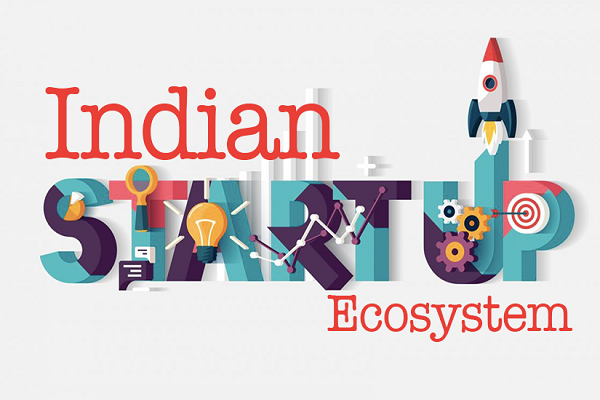India’s thriving startup ecosystem, once celebrated as the third-largest globally after the US and China, is now witnessing a significant slowdown in funding. As global economic uncertainties persist, venture capital (VC) firms and private equity investors are becoming increasingly cautious. Investment in Indian startups dropped by 37% in the first quarter of 2025, compared to the same period in 2024, marking one of the sharpest declines in recent years.
In This Article:
This downturn has raised concerns across multiple sectors, with fintech, edtech, and e-commerce startups facing the most significant impact. Experts suggest that investors are now shifting their focus towards profitability and sustainability rather than rapid expansion, forcing startups to rethink their business strategies.
Decline in Large-Scale Investments
Several Indian unicorns and late-stage startups are struggling to secure funding at their desired valuations. Unlike the aggressive investment landscape of 2021 and 2022, where startups raised billions based on growth potential alone, today’s funding rounds are taking longer to close, and investors are demanding clearer paths to profitability.
According to market analysts, while early-stage startups are still attracting moderate investments, Series C and D funding rounds have seen a drastic reduction. This has resulted in:
- Extended fund-raising timelines: Startups that previously closed funding rounds in a few months now take nearly a year to secure capital.
- Downward valuation adjustments: Many startups are accepting lower valuations, also known as “down rounds,” to sustain operations.
- Shift towards internal funding: Startups backed by large venture firms are relying on bridge financing and internal rounds rather than seeking new investors.
“In the current landscape, we are seeing a flight to quality. Investors are looking for sustainable revenue models instead of just high-growth projections,” said Ankur Mehta, a senior analyst at a Mumbai-based investment firm.
Sectors Facing the Impact
- Fintech: Regulatory changes by the Reserve Bank of India (RBI), particularly on digital lending norms, have added compliance burdens on fintech startups. This has made it harder for companies to scale quickly, leading to reduced investor enthusiasm.
- Edtech: The pandemic-driven boom in edtech startups has faded as offline education returns to normalcy. Many high-profile companies have resorted to mass layoffs, restructuring, or pivoting to B2B models to survive.
- E-commerce: Consumer spending in the online retail sector has slowed due to inflationary pressures and increased competition from established players like Amazon and Flipkart. This has led to lower repeat purchases and rising customer acquisition costs.
Shift Towards AI, Deep Tech, and Climate Tech
While traditional sectors are struggling, investments in artificial intelligence (AI), deep tech, and climate tech have remained relatively stable. Global investors are betting on India’s potential to become a technology and sustainability hub, thanks to supportive government initiatives like:
- The National AI Mission, which promotes research and innovation in artificial intelligence.
- Make in India, encouraging homegrown manufacturing and deep tech startups.
- Green Energy Initiatives, focusing on electric mobility and renewable energy solutions.
“Innovation-driven sectors like AI, machine learning, and climate tech are still attracting investment. Investors see these industries as long-term bets that will shape the future of technology and sustainability,” said Ritika Sharma, a venture capitalist specializing in deep tech investments.
Government Initiatives to Revitalize the Startup Ecosystem
Recognizing the funding slowdown, the Indian government has introduced several reforms to support startups:
- Tax Incentives: The 2025-26 budget has introduced corporate tax cuts and simplified GST rules for startups to reduce financial burdens.
- Support for Gig Workers: The government is rolling out identity cards and welfare benefits for gig workers, indirectly helping startups that rely on flexible labor.
- Infrastructure Development: Increased government spending on smart cities and digital connectivity will benefit logistics and supply chain startups.
Global Investment Trends Favor India Over China
A recent survey by the Official Monetary and Financial Institutions Forum (OMFIF) highlights that sovereign wealth funds and institutional investors managing $6.5 trillion are increasing allocations towards India. With China facing regulatory crackdowns and economic instability, India is emerging as the preferred investment destination.
The Road Ahead for Indian Startups
Industry experts predict that 2025 will be a year of consolidation, where only startups with strong fundamentals and profitability will survive. The new funding environment is forcing entrepreneurs to rethink their strategies, focusing more on operational efficiency, sustainable growth, and cost optimization.
Despite the slowdown, India’s startup ecosystem remains one of the largest in the world. While the era of easy capital is over, startups that prioritize cash flow management, cost reduction, and innovative business models will continue to thrive.
For now, entrepreneurs are being advised to reassess their business models, cut unnecessary expenses, and prioritize sustainable growth strategies to weather the funding winter.
By – Nikita
Also Read – India Works to Protect Exports Amid U.S. Tariff Threats: Finance Minister Sitharaman



